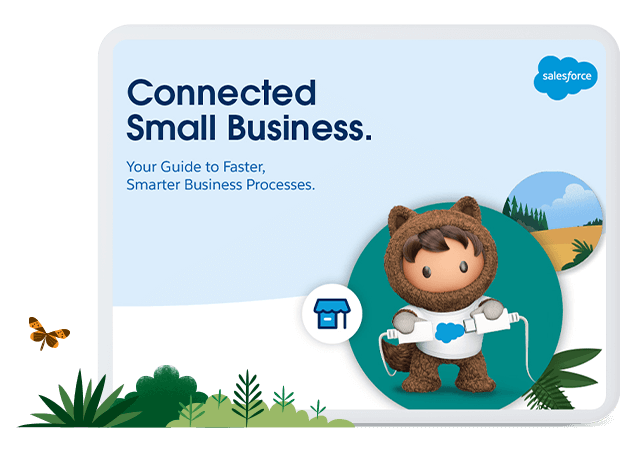It’s no secret that we’re living in a data-driven age. But in order to reach its potential, data must be turned into intelligence and actionable insights – and businesses need to know how to use that intelligence. Enter business analytics tools.
Business analytics tools offer a way for today’s SMEs to harness their data to improve operational efficiencies, unlock new business models and connect with their customer – and those are just some of the benefits. It’s no surprise, then, that the most successful businesses are using analytics to drive business strategy and improve outcomes.
In this increasingly challenging climate, when better business depends on better data, how can SME leaders start their journey towards becoming a data analytics visionary? Let’s take a look at what business analytics tools are, and then see how they can help your SME turn every person into a data person.
What are business analytics tools?
Business analytics tools can retrieve, collate and analyse data, enabling organisations to use that data to fuel business intelligence. Most companies use various business data analytics tools. Some of these tools include predictive-modelling tools, spreadsheets, statistical software and data-mining solutions. If you have a ‘what if’ question, there’s a good chance that business analytics tools can help you answer it.
What are the benefits of business analytics tools?
Put simply, business analytics tools provide intelligence that can unlock benefits across the value chain. In fact, there’s hardly any aspect of a business that couldn’t benefit from better business intelligence.
Here are just a few ways that organisations can benefit from business analytics tools:
Increase operational efficiency and reduce operating costs.
Increase revenue and drive growth.
Facilitate better customer engagement and boost customer satisfaction.
Create a culture of innovation.
Identify new revenue streams.
Improve existing products and services.
Create a better business strategy based on predicted outcomes.
What are the challenges of business analytics?
Business analytics tools are taking SMEs to exciting new places, but some are further along than others. Many of today’s organisations are still trying to unite and centralise their data, while others are focusing on skilling up the workforce to become more data-oriented.
Some challenges to unlocking the power of data analytics include:
Too much unstructured data. Reports show that up to 90% of data may be unstructured, or not stored in a structured database. This data is not only being wasted for analytical purposes; it could pose a security risk. To get the most out of your data – and ensure security – consider centralising your data management.
Too little automation: The sheer amount of data that companies generate can be overwhelming, and too many businesses are still spending too much time on manual processes and updating spreadsheets. By introducing artificial intelligence and automating processes, organisations can streamline their business analytics and free up the workforce.
Not enough access: One of the key benefits of business analytics tools is their accessibility. After all, the democratisation of data is one of the trends that’s driving high performers. Unfortunately, too many businesses are still using complex processes that rely on data scientists and business analysts, not end users.
What are the best business analytics tools for your organisation?
Every business has unique needs – and every business needs different tools. The best business analytics tools for your enterprise depend on what benefits you want to unlock. Who will be using the tools is another important consideration. That being said, there are some important elements to consider.
Artificial Intelligence. Business analytics tools are driven by AI, which helps businesses identify patterns and problems and even predict fixes for those problems. AI-driven analytics can help with everything from scheduling and reducing operating costs to navigating supply chain issues and creating new products based on customer input.
Easy-to-consume insights. Unless your business has a team of data scientists on hand, you’ll want to find business analytics tools that produce intuitive, easy-to-decipher insights with no code involved. It’s even better if those insights are delivered via a shareable dashboard.
Natural language processing. A next-level feature of some business analytics tools, natural language processing makes it easy to find simple answers to complex business questions. With natural language processing chatbots, you can simply type in simple questions or commands, such as ‘what’s my Minimum Stock Level for March?’, and ‘send me an email with that information’, and have valuable insights delivered to your fingertips.
Real-time reporting. Today’s business world moves quickly and every second counts. Business analytics tools with real-time updates will help you keep up with any website issues, quickly adjust to changing market conditions and provide your teams with the most up-to-date information available. Nearly 60% of high-performing businesses are able to take advantage of timely insights, versus just 11% of their underperforming counterparts.
Scalable and easy to integrate. As your business evolves, your needs may change, so you’ll want to have data analytics tools that can scale with you. By choosing tools that support wide integration and can scale up to include new capabilities, you can future-proof your business.
The future is here: new trends in business intelligence software
Business intelligence software is empowering businesses to develop new products and services, create better experiences for employees and customers, and optimise their processes. But in some ways, we’re still at the edge of the data revolution. The Internet of Things promises to leverage analytics even further, reimagining everything from medical diagnostics to housing to agriculture. For today’s businesses and their customers, the future looks smart.
To see more about how you can connect processes and unlock the power of your data, download our free eBook, The Connected Small Business.








